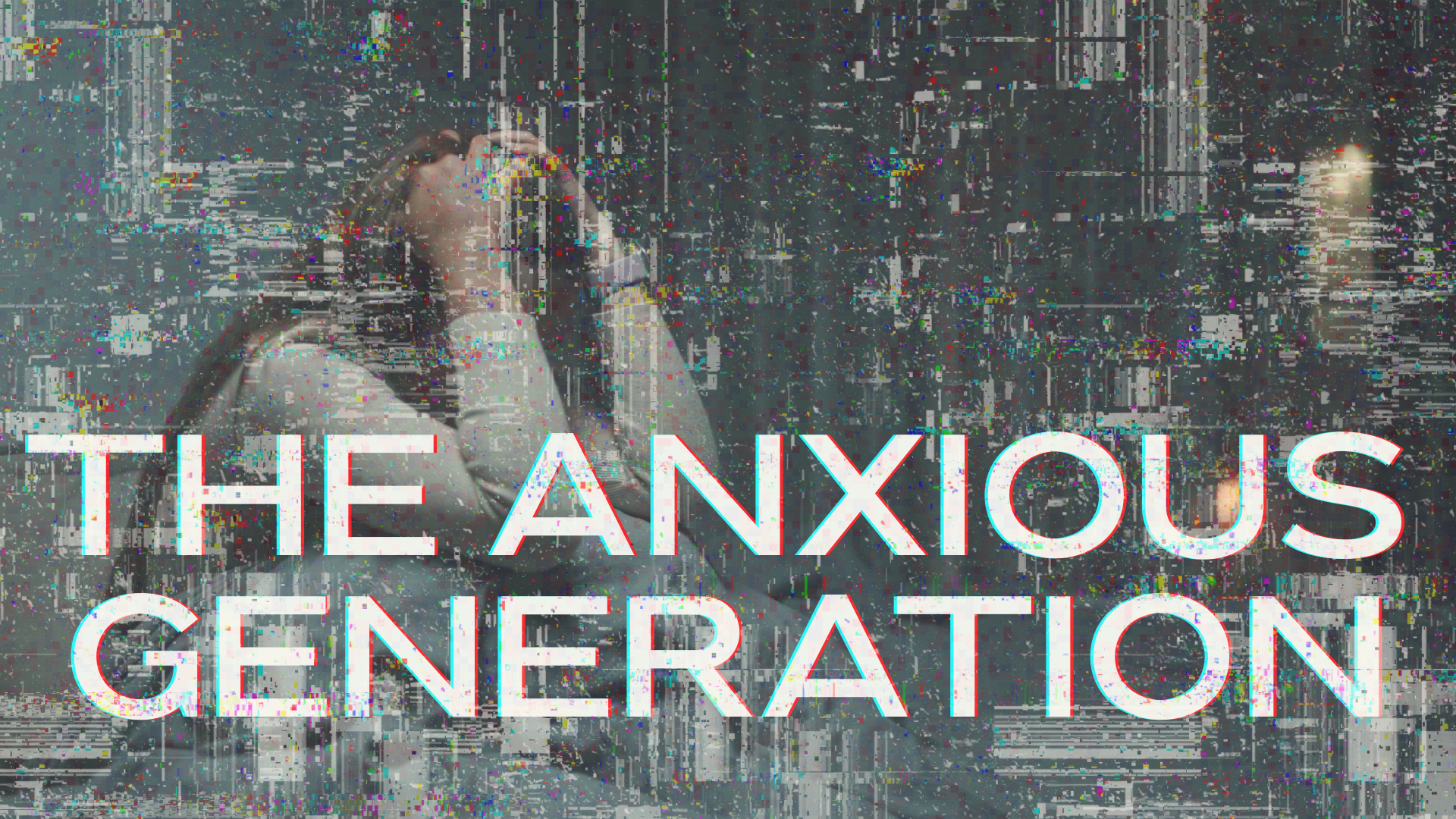The mental health of teens and young adults has declined rapidly over the last 15 years. Rates of depression, anxiety, death by suicide and other mental health measures have risen sharply, some even doubling. That is alarming! Why? And more importantly, how can the church respond?
In his book The Anxious Generation, author Jonathan Haidt highlights the impact of digital technology, especially the rapid integration of social media and smartphones into daily life, as a significant contributor to the mental health decline of Generation Z. Though technology is a major factor, this crisis is also the result of decades of cultural changes that have negatively affected our children and grandchildren. But there is hope!
We did a three-part sermon series around this issue in September. In the Videos and Sound Cloud streams below, Dr. Bruce Hanlon will open our series with a message defining the problem and why we should care about it. Pastor James will talk about how and why this mental health crisis has disproportionately impacted young women (and how young men are also affected). And Pastor Rob will conclude with what we can do as a church to provide help and hope to young people in our community. Every message will connect the issues back to Scripture as we seek to be salt and light to the next generation.
The Anxious Generation Panel Discussion
Mark your calendars for an important evening focused on today's challenges! We're hosting a special panel discussion on Friday, October 24th, at 6:00 PM to dive into the tough topics facing Gen Z and young families. Dinner will be served at 6:00 PM. RSVP below.
Join us as Pastor Rob Wheeler, James Trevillian, Bruce Hanlon, and Miriam Tevillian lead a 45-minute conversation addressing your questions about smart devices, screen time, social media, and mental health.
Meet the Panelists (all parents of teens!):
Dr. Bruce Hanlon is the headmaster of Trinity Christian Academy and has served as both a pastor and missionary.
James Trevillian has over 20 years of experience in student ministry. He has also worked with digital technology and A/V.
Miriam Trevillian RN, CPN has over 20 years of experience working with kids and teens as a nurse and a student ministry volunteer.
Rob Wheeler is Senior Pastor of OBC and previously served in both student ministry and collegiate ministry.This will be an insightful and helpful event for parents, grandparents, and anyone who interacts with the younger generation. Parents, kids, and teens are welcome to join us for the 45-minute panel.
We will have a table where you can ask your questions for the panel when you walk in.
Childcare will be provided for children eight and under.
Please RSVP at the link below if you plan to attend.
FAQs
As a church, we are dedicated to supporting our families in all aspects of life, including the challenges of the digital age. This FAQ provides practical tools and resources for parents as we learn how to be "salt and light" to the next generation.
-
This is an incredibly difficult situation, and it's essential to remember that you are not alone. Our upcoming sermon series will address this in depth, but here are some immediate steps you can take:
Talk to them. Create an open, non-judgmental space for conversation. Ask how they are feeling and listen without immediately trying to "fix" the problem. Let them know you are there for them, no matter what.
Reach out to a professional. It's crucial to connect with a qualified mental health professional, such as a counselor or therapist. They can provide your child with the tools and support they need.
Encourage healthy habits. This includes setting aside dedicated family time, limiting screen time, encouraging physical activity, and ensuring they get enough sleep.
Pray. We believe in the power of prayer. Lift your child up in prayer, asking God for wisdom, comfort, and healing. You can also reach out to our prayer team for support.
-
Anchored Virtual
Biblically Grounded, Clinically Informed Virtual Counseling
Anchored Virtual practically helps those hurting by anchoring their hope in Jesus and gaining a better understanding of his promises. They offer reputable, biblical counsel to those suffering or experiencing difficult seasons.
Phone: (302) 205-3446
Email: admin@biblicalcounseling.online
Website: https://anchoredvirtual.com/
Benjamin Leahy
LICENSED MENTAL HEALTH COUNSELOR (LMHC)
Phone: 774-251-9343
Email: bleahycounseling@gmail.com
Website: http://leahycounseling.com/
Lila Beckford
CLINICAL SOCIAL WORK THERAPIST (LICSW)
Website: https://www.rula.com/providers/MA/1194583591?utm_source=psychology_today
-
As a church, we are committed to being a safe and supportive community. Here are some ways we can help:
Sermon Series: Our three-part series in September will provide biblical and practical guidance on understanding and responding to the mental health crisis.
OBC Youth: The OBC Youth group will be talking about The Anxious Generation with students in grades 6-12 on Wednesdays for three weeks. We invite your teen to come learn more about this important topic in a supportive, peer-led environment.
Small Groups: We encourage you to join a small group for fellowship and support. Our leaders are here to walk alongside you as you navigate these challenges.
Prayer: We have a dedicated prayer team that would be honored to pray for you and your family. Please submit a prayer request through our website or speak with a pastor after a service.
Community: We will connect you with other parents and families who are facing similar issues, so you can share experiences and encourage one another.
-
no phones at the dinner table.
no phones while in conversation with others.
no technology behind closed doors.
set time limits on social media.
no social media before 16 years old.
track your media consumption and read the weekly reports of usage.
don't take phones into the restroom.
implement regular technology fasting.
-
This is a great place to start! Setting up these controls is often easier than you think. Most modern devices and gaming systems have built-in features for this.
For iPhones and iPads: Apple's built-in feature is called Screen Time. You can access it in the Settings app. From here, you can set daily time limits for apps, block inappropriate content, restrict purchases, and manage communication with others. It's a great tool for managing your child's device directly from your own. Check out Apple Support for more info!
For Android Phones: Google offers a free app called Google Family Link. This app allows you to set digital ground rules, approve or block apps your child wants to download, set screen time limits for their device, and even lock the device entirely during homework or bedtime. Learn More Here!
For Nintendo Switch: The Nintendo Switch has a dedicated smartphone app called Nintendo Switch Parental Controls. You can connect it to your child's console and remotely set play-time limits, restrict games based on age ratings, and monitor what games they've been playing. This app is often more user-friendly and gives you more control than the console's on-board settings alone.
-
While built-in tools are good, you may want to consider a more comprehensive solution, especially for older teens. Several well-regarded apps offer a wider range of features.
Bark: This app is highly recommended for its focus on discreet monitoring. Instead of simply blocking sites, it uses A.I. to scan for signs of cyberbullying, suicidal ideation, or other concerning content in texts, emails, and social media, and then alerts you so you can have a conversation with your child.
Qustodio: This is a popular option that offers a user-friendly interface for setting limits, blocking content, and viewing a detailed report of your child's activity. It works across multiple platforms, including phones, tablets, and computers.
Resources
-
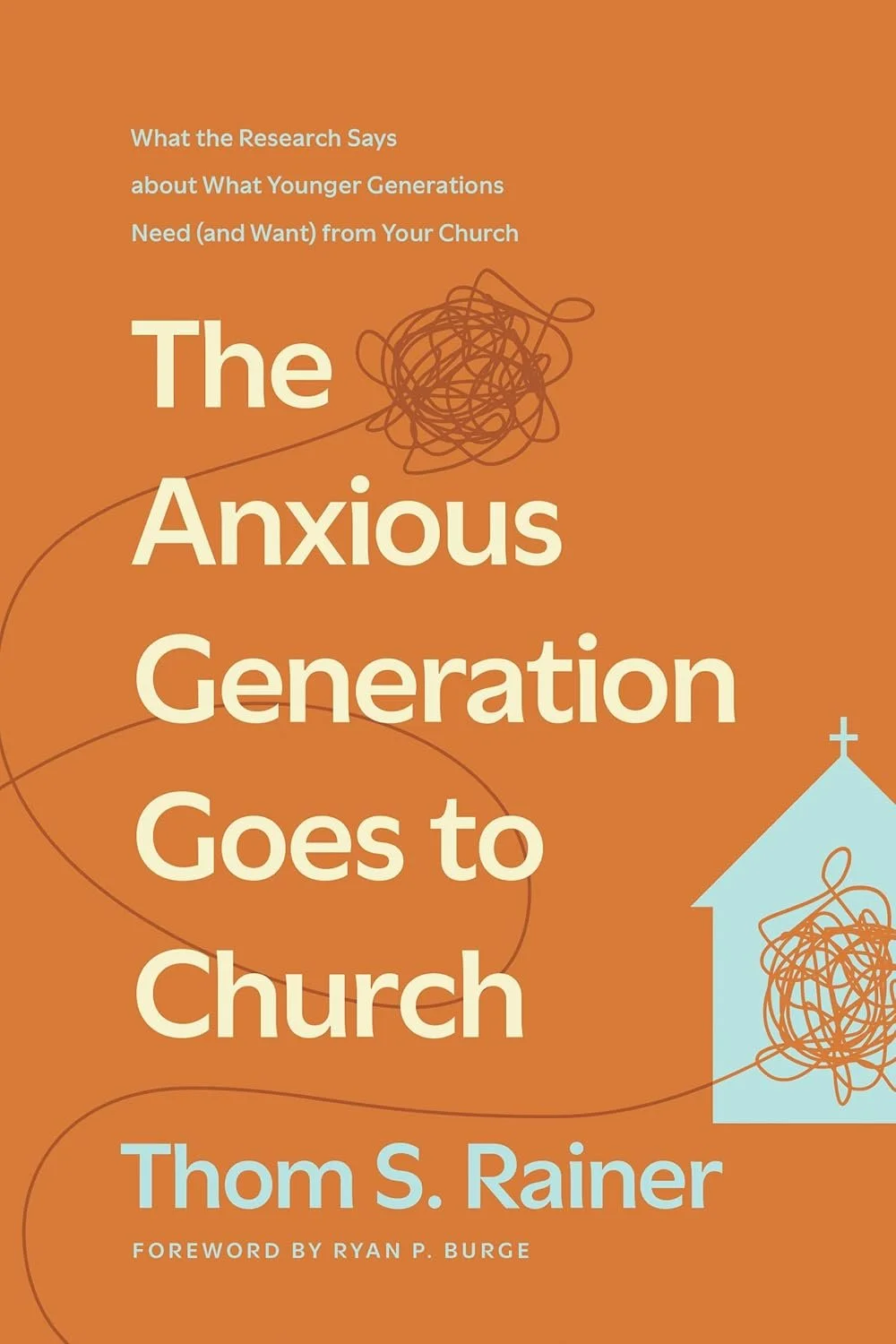
The Anxious Generation Goes to Church: What the Research Says about What Younger Generations Need (and Want) from Your Church
The culture is at inflection point. Nearly two-thirds of Gen Zers reported experiencing at least one mental health problem in the past two years. This statistic was lower for all older generations, including Millennials (51%), Gen Xers (29%) and Boomers (14%). Gen Z is the loneliest generation of Americans, lacking deep relationships and offline connection. Sixty-eight percent of Gen Z feel like nobody knows them well. That is one reason why this generation is called the anxious generation. Researchers have identified everything from social media to pandemic lockdowns as the prime culprit of why Gen Z is struggling with issues like mental illness more than other generations.
Thom Rainer views the church as God’s Plan A for helping this generation discover their true calling and thrive in a purposeful and genuine faith community. In this book, Thom explores research that reveals that the anxious generation is yearning for meaningful community and is waiting to be invited in. -
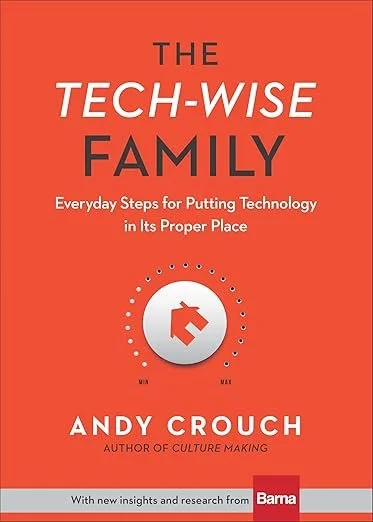
The Tech-Wise Family: Everyday Steps for Putting Technology in Its Proper Place
Making good choices about technology in our families is more than just using internet filters and determining screen-time limits for our children. It's about building character, wisdom, and courage rather than accepting technology's promises of ease and instant gratification. It's about developing our heart, mind, soul, and strength when we're tempted to settle for entertainment and consumer satisfaction. And it's definitely not just about the kids.
Alongside in-depth original research from Barna Group, Andy Crouch shows you there's a way to choose a better life than you've imagined, by:
● making the mission of your family to cultivate wisdom and courage
● putting the development of character and creativity at the heart of the home
● building regular rhythms into your lives that make it possible to know one another, God, and our world in deeper ways
● implementing daily disciplines for a healthier life with technology
● prioritizing what matters most -
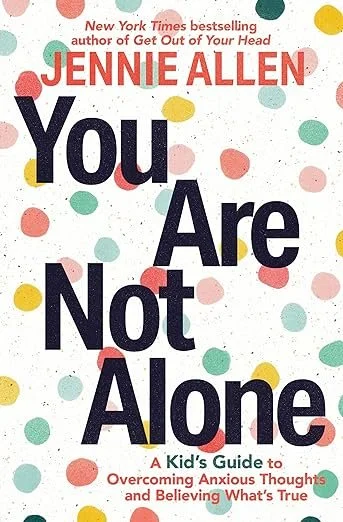
You Are Not Alone: A Kid's Guide to Overcoming Anxious Thoughts and Believing What's True
Spinning, anxious thoughts can sometimes take over our minds and not let go, but we have the power to choose what to think and believe—and so do our children. In this edition for young readers, bestselling author Jennie Allen draws on the insights, truth, and experiences from her New York Times bestsellers Get Out of Your Head and Find Your People to help younger kids and tweens:
• trade fear, anxiety, loneliness, and shame for God’s love and peace
• learn how to notice lies and believe what’s true
• hit pause on negative thoughts and retrain their brains to think life-giving thoughts
• gain tools to rely on God’s power and truth every day
Kids don’t have to be at the mercy of toxic input and negative thoughts. In these pages, they’ll discover exactly how to interrupt swirling thought patterns, develop better friendships, and create new day-to-day habits that will lead them closer to God and to a life of peace, joy, and love. You Are Not Alone includes questions, action steps, Bible verses, and real-life stories to help them be who God has called them to be. -
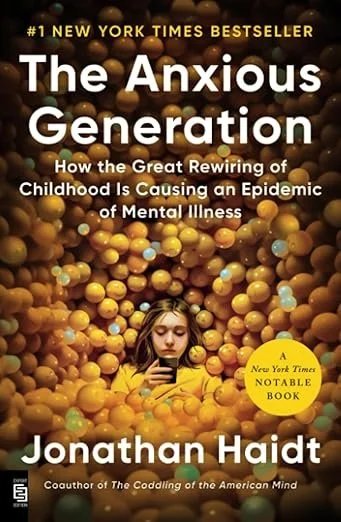
The Anxious Generation: How the Great Rewiring of Childhood Is Causing an Epidemic of Mental Illness
After more than a decade of stability or improvement, the mental health of adolescents plunged in the early 2010s. Rates of depression, anxiety, self-harm, and suicide rose sharply, more than doubling on many measures. Why?
In The Anxious Generation, social psychologist Jonathan Haidt (pronounced "height") lays out the facts about the epidemic of teen mental illness that hit many countries at the same time. He then investigates the nature of childhood, including why children need play and independent exploration to mature into competent, thriving adults. Haidt shows how the “play-based childhood” began to decline in the 1980s, and how it was finally wiped out by the arrival of the “phone-based childhood” in the early 2010s. He presents more than a dozen mechanisms by which this “great rewiring of childhood” has interfered with children’s social and neurological development, covering everything from sleep deprivation to attention fragmentation, addiction, loneliness, social contagion, social comparison, and perfectionism. He explains why social media damages girls more than boys and why boys have been withdrawing from the real world into the virtual world, with disastrous consequences for themselves, their families, and their societies.
Most important, Haidt issues a clear call to action. He diagnoses the “collective action problems” that trap us, and then proposes four simple rules that might set us free. He describes steps that parents, teachers, schools, tech companies, and governments can take to end the epidemic of mental illness and restore a more humane childhood. -

Common Sense Media
Common Sense Media developed a research-based rating system unlike any other, co-created with experts in childhood development and children's media literacy.
Because media profoundly affects kids' social, emotional, and physical development, Common Sense evaluates media for age appropriateness, diverse representations, and learning potential. We rate the high-profile media titles that are intended for—or appeal to—kids age 2 to 18, including movies, games, books, podcasts, apps, websites, and TV shows.
Their ratings are written by expert reviewers and aren't influenced by creators, media partners, or funders in any way. The ratings aim to inform, educate, and guide families so they better understand what kids can handle at every age.
-
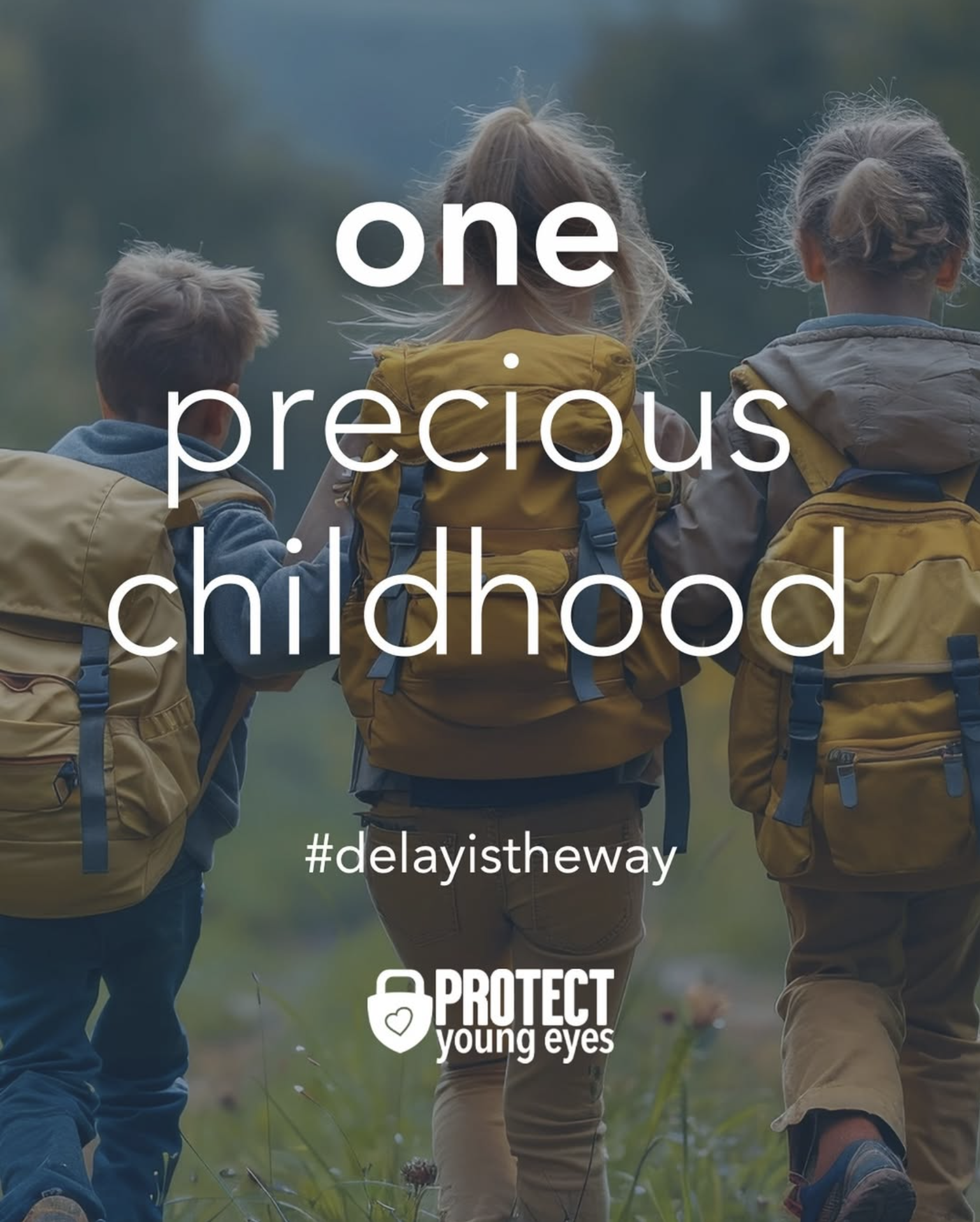
Protect Young Eyes
Protect Young Eyes is an organization founded by Chris McKenna, a former youth ministry director who recognized the urgent need to help families and churches navigate digital safety. Their mission is to equip parents with the research, education, and practical tools to guide their children to be prepared, balanced, and protected online.
Unlike simple blocking software, Protect Young Eyes focuses on a holistic approach that includes:
Practical Education: They provide clear, easy-to-understand guides and reviews of popular apps, games, and devices. This helps you stay informed about the digital world your children are in, even if you don't feel "tech-savvy."
Empowering Parents: They offer a variety of resources, from online courses to blog posts, that help you move beyond just "parental controls" and into a more proactive role. They believe in fostering trust and open communication with your kids.
A Biblical Worldview: Their work is rooted in Christian principles, encouraging families to use technology in a way that honors God and promotes spiritual and emotional health.
We highly encourage you to explore their website and see how their resources can help you lead your family in the digital age.
Visit the Protect Young Eyes website: protectyoungeyes.com

